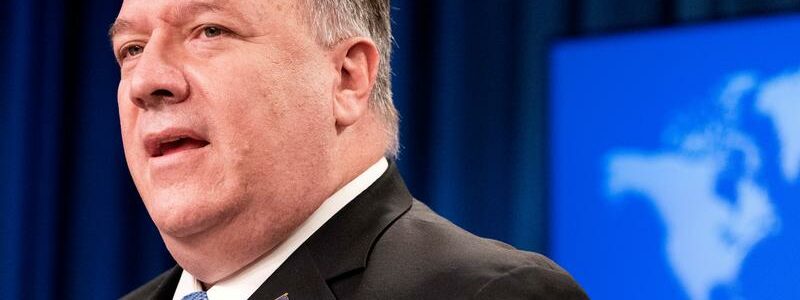
Pompeo lifts 'self-imposed restrictions' on U.S.-Taiwan relationship
WASHINGTON (Reuters) – Secretary of State Mike Pompeo on Saturday said he was lifting restrictions on contacts between U.S. officials and their Taiwanese counterparts, a move likely to anger China and increase tensions between Beijing and Washington in the waning days of President Donald Trump’s presidency.
China claims democratic and separately ruled Taiwan as its own territory, and regularly describes Taiwan as the most sensitive issue in its ties with the United States.
While the United States, like most countries, has no official relations with Taiwan, the Trump administration has ramped up backing for the island country, with arms sales and laws to help Taiwan deal with pressure from China.
In a statement, Pompeo said that for several decades the State Department had created complex internal restrictions on interactions with Taiwanese counterparts by American diplomats, service members and other officials.
“The United States government took these actions unilaterally, in an attempt to appease the Communist regime in Beijing,” Pompeo said in a statement.
“Today I am announcing that I am lifting all of these self-imposed restrictions,” he added.
The Taipei Economic and Cultural Representative Office in the United States in Washington, which serves as Taiwan’s unofficial embassy, said the move showed the “strength and depth” of the United States’ relationship with Taiwan.
The U.S. ambassador to the United Nations, Kelly Craft, will visit Taiwan next week for meetings with senior Taiwanese leaders, prompting China to warn on Thursday they were playing with fire.
Chinese fighter jets approached the island in August and September during the last two visits: by U.S. Secretary of Health and Human Services Alex Azar and U.S. Under Secretary of State for Economic Growth, Energy, and the Environment Keith Krach, respectively.
The United States is Taiwan’s strongest international backer and arms supplier, and is obliged to help provide it with the means to defend itself under the 1979 Taiwan Relations Act.
“The United States government maintains relationships with unofficial partners around the world, and Taiwan is no exception. … Today’s statement recognizes that the U.S.-Taiwan relationship need not, and should not, be shackled by self-imposed restrictions of our permanent bureaucracy,” Pompeo said.
Source: Read Full Article